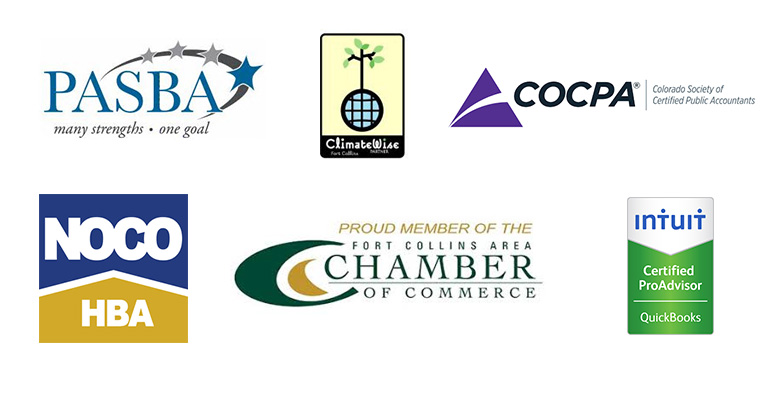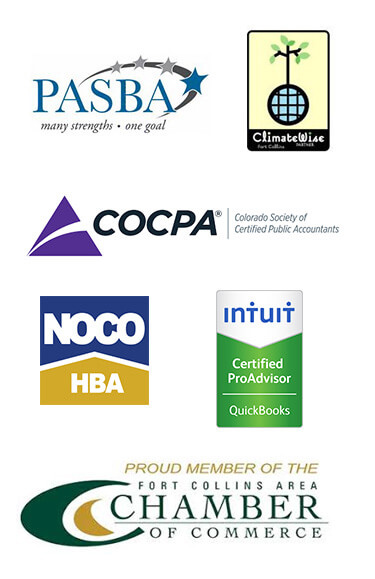Restaurant Accounting
Efficient financial management is essential for the success and growth of service-based businesses like restaurants. No matter the size, accurate and streamlined restaurant accounting that restaurant financial advisors can provide play a crucial role in making informed business decisions and maximizing profitability. However, many restaurant owners and managers struggle with the complex and time-consuming task of managing financial records effectively.
The difficulty of handling accounting tasks alongside the core operations is one common challenge that restaurant owners face. Balancing the demands of managing inventory, overseeing staff, and ensuring exceptional customer experiences leaves little time for proper financial bookkeeping. As a result, vital accounting tasks such as tracking expenses, analyzing financial data, and ensuring tax compliance often take a back seat, leading to inefficiencies and potential financial risks.
Another significant hurdle for restaurant owners is navigating the intricate web of tax regulations and reporting requirements specific to the food service industry. Failure to comply with tax laws can result in penalties, audits, and damage to the restaurant’s reputation. The complexities of managing tips, payroll, inventory valuation, and sales tax further add to the burden, making it challenging for owners to maintain accurate financial records and minimize their tax liabilities.
Because of these challenges, restaurant owners like you can benefit greatly from restaurant financial advisors offering specialized financial help for restaurants. These services are specifically tailored to the unique needs of the industry, combining accounting expertise with an understanding of the intricacies involved in managing financial records for restaurants.
Using restaurant accounting services allows you to offload your accounting tasks and gain access to a team of experts that are well-versed in restaurant financial management. These professionals utilize industry-specific software and tools to streamline processes, track expenses, monitor cash flow, and generate comprehensive financial reports. Moreover, restaurant accounting services can ensure compliance with tax regulations by staying up-to-date with the latest tax laws and regulations specific to the food service industry.
How is Restaurant Accounting Different from Other Small Business Accounting?
While all businesses in any industry are not safe from profit loss, restaurant accounting is more prone to it. One reason is that the profit margins of restaurants are minimal and minor shifts in market prices of goods can quickly affect the daily or weekly revenue. This can best be demonstrated by plate costing.
What is Plate Costing?
Plate costing is a method used to determine the cost of producing a product or service. It is commonly used in the restaurant and food service industry, where the cost of each menu item needs to be calculated accurately to ensure profitability.

For example, you may have calculated and scheduled your plate cost to be 30% of what you’re charging your customers. But because you want a better tip, the chef or the server then adds items on the plate apart from the usual steak and mashed potato. This can add a few pennies to a dollar to the standard price. And on that one plate, you can earn about 35% or you can lose all your profit margin.
Steven J Wick, a CPA in Fort Collins, says: “Typically, we try and get maybe seven or eight percent bottom line profit to a business.”
How Labor Cost Affects the Profit Margin
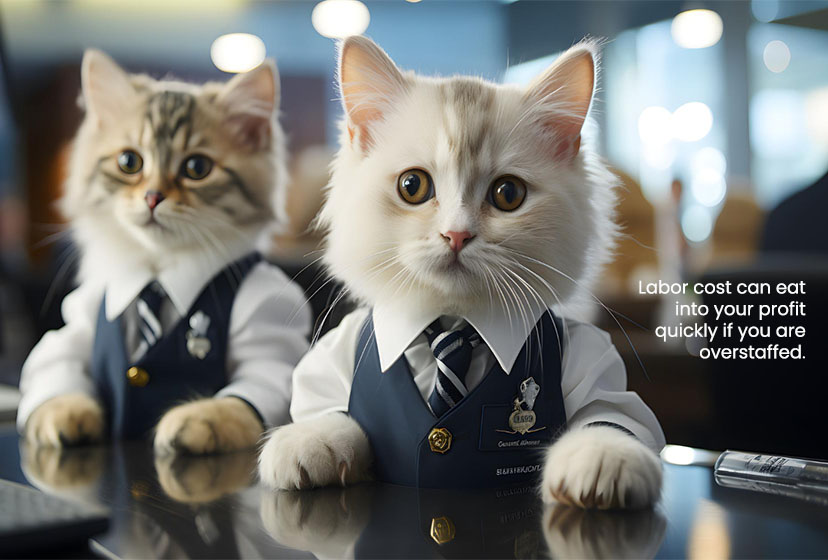
The profit loss doesn’t always happen with plate costing. Another huge factor is the labor cost. Having the passion to please your customer is understandable. It’s the heart of service-based businesses. Maybe you want everyone to be served promptly instead of having them wait minutes before their food arrives. However, you may not realize that you are overstaffed and on off-peak days, some of your servers or kitchen staff could be sitting around just waiting for the next task.
This can eat into your profit quickly, as well.
Understand the Huge Impact of Spoilage on Your Profit Margin
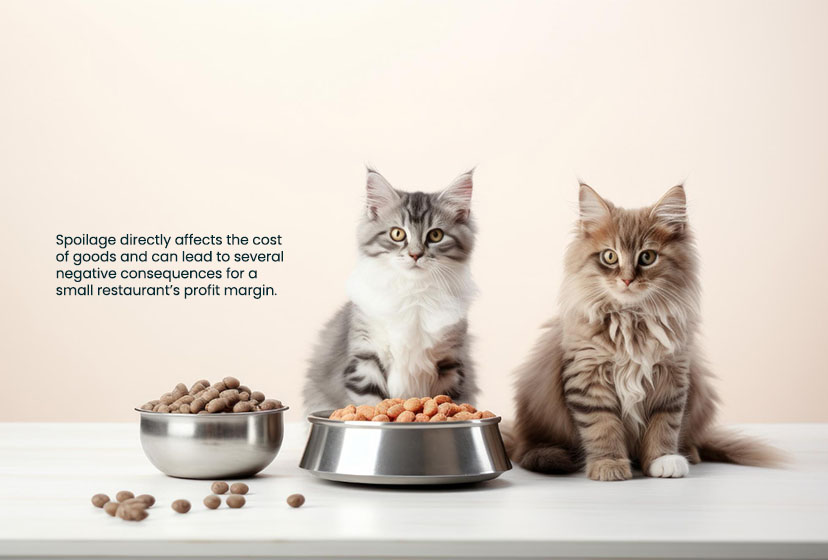
Spoilage can have a significant impact on the profit margin of a small restaurant. Profit margin is the percentage of revenue that remains as profit after deducting all expenses, including the cost of goods sold (COGS), labor, rent, utilities, and other operating expenses. Spoilage directly affects the COGS and can lead to several negative consequences for a small restaurant’s profit margin.
Spoilage can have a significant impact on the profit margin of a small restaurant. Profit margin is the percentage of revenue that remains as profit after deducting all expenses, including the cost of goods sold (COGS), labor, rent, utilities, and other operating expenses. Spoilage directly affects the COGS and can lead to several negative consequences for a small restaurant’s profit margin.
Is There a Difference Between Restaurant Accounting Services for Large Restaurants and Small or Family-Owned Restaurants?
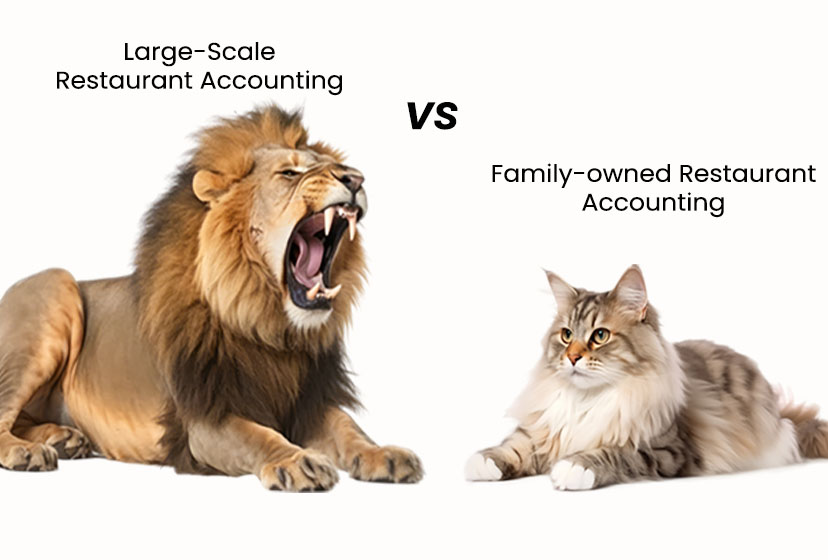
You may think that accounting processes in all businesses are the same, but there are differences, of course, depending on the industry and the size of your establishment. Restaurant accounting services for large and small or family-owned restaurants differ as well.
Larger-scale restaurants usually have accounting systems already in place, compared to smaller restaurants which may not.
For example, larger restaurants perform plate costing on a weekly basis within their system so when the prices of menus are set when they tap in your order. These prices already include different charges including how much was charged to them by the company that they acquire the ingredients from.
Scale of Operations
Large restaurants often have more complex and extensive operations compared to family-owned restaurants. They may have multiple locations, larger staff, higher sales volume, and a broader range of menu items. Consequently, accounting processes and systems in large restaurants may be more sophisticated and capable of handling higher transaction volumes and greater data complexity.
Family-owned restaurants, on the other hand, have smaller operations, typically with a single location and a smaller workforce. The scale of transactions and financial data may be more manageable, requiring less complex accounting systems and processes.
Organizational Structure
Large restaurants often have a more formalized organizational structure with multiple departments and hierarchical roles. This structure may include dedicated accounting, finance teams, or restaurant financial advisors responsible for various restaurant accounting services, such as financial reporting, budgeting, and cost analysis. In these cases, accounting tasks are typically centralized and handled by professionals with specialized expertise.
In family-owned restaurants, the organizational structure is simpler and less formal. The owners themselves or a small team may handle accounting functions alongside their other responsibilities. This can result in a more hands-on and personalized approach to accounting, with less separation of duties and a greater reliance on external accountants or bookkeepers for assistance.
Reporting Requirements
Large restaurants often have more extensive reporting obligations due to regulatory requirements and the need for transparency in publicly traded companies or franchise operations. They may need to comply with specific accounting standards, such as Generally Accepted Accounting Principles (GAAP), and report financial results to shareholders, investors, and regulatory bodies. Large restaurants may also require audits or reviews by external restaurant financial advisors.
Family-owned restaurants typically have fewer reporting obligations, especially if they are not publicly traded or subject to specific regulatory oversight. They may have more flexibility in terms of financial reporting and may choose simpler accounting frameworks, such as cash-based accounting or modified cash-based accounting, to meet their operational needs.
Ownership Structure and Decision-Making
In large restaurants, decision-making processes often involve multiple stakeholders, including shareholders, board members, and executive management. Accounting data and financial analysis play a critical role in supporting these decision-making processes, such as expansion plans, mergers and acquisitions, and investment strategies. Accounting systems in large restaurants are designed to provide detailed financial information and analysis to facilitate these strategic decisions.
In family-owned restaurants, decision-making is typically centralized within the family or a small group of owners. Accounting information is primarily used for day-to-day operations, assessing profitability, and managing costs. The focus may be more on cash flow management and meeting immediate financial needs rather than long-term strategic planning.
Do I Need Restaurant Financial Advisors or CPAs for My Restaurant?
- Financial expertise: A CPA specializing in restaurants possesses specialized knowledge and expertise in financial matters. They can help you understand and interpret complex financial statements, track expenses, analyze profitability, and provide guidance on improving financial performance.
- Tax compliance: Restaurants have unique tax considerations, including sales tax, payroll taxes, and potentially complex deductions and credits. An accountant can ensure that you meet all tax obligations, help you optimize deductions, and provide valuable advice on minimizing tax liability.
- Bookkeeping and record-keeping: CPAs offer great financial help for restaurants. Proper bookkeeping and record-keeping are crucial, and accountants can assist in setting up effective bookkeeping systems, maintaining accurate records of income and expenses, reconciling accounts, and ensuring compliance with financial regulations.
- Cost control and budgeting: An accountant can help you establish a budget, monitor expenses, identify cost-saving opportunities, and control overhead costs. They can also provide insights into pricing strategies and menu engineering to optimize profitability.
- Financial analysis and forecasting: Accountants can perform financial analysis, conduct ratio analysis, and create financial forecasts for your restaurant. These tools can help you assess the financial health of your business, identify trends, and make informed decisions for future growth.
- Cash flow management: Restaurants often face cash flow challenges due to the timing of revenue and expenses. An accountant can assist in managing cash flow effectively by monitoring receivables, payables, and inventory levels, helping you avoid cash shortages or excessive borrowing.
- Business planning and strategy: Accountants can collaborate with you in developing a sound business plan and financial strategy for your restaurant. They can provide valuable insights and advice on expansion plans, funding options, and investment decisions.
While hiring an accountant is not mandatory, their expertise can be invaluable in ensuring the financial stability and success of your restaurant. If you’re unsure about hiring a full-time accountant, you can also consider outsourcing restaurant accounting services or seeking part-time assistance based on your specific needs and budget. That said, your next question should be: “Where to find a restaurant CPA near me?” or “How much does a CPA cost for a small restaurant business?
How Much Does a CPA Cost for a Small Restaurant Business Typically?
The cost of hiring a Certified Public Accountant (CPA) for a small restaurant business can vary based on several factors, including the complexity of your financials, the services required, the location of your business, and the experience level of the CPA. Here are some general guidelines to give you an idea of potential costs:
Hourly Rates: Many CPAs charge by the hour. Hourly rates can vary widely depending on the location and the CPA’s experience. On average, you might expect to pay anywhere from $100 to $300 or more per hour.
Monthly or Quarterly Retainer: Some CPAs may offer a retainer arrangement, where you pay a fixed monthly or quarterly fee for specific services. This can be beneficial for small businesses with consistent accounting needs. Retainer fees may range from a few hundred to a few thousand dollars per month, depending on the services provided.
Annual Tax Preparation Fee: If you only need a CPA for annual tax preparation and filing, the cost could be based on the complexity of your tax situation. For a small restaurant, you might expect to pay anywhere from $500 to $2,000 or more for tax preparation services.
Additional Services: If you require more extensive financial services, such as bookkeeping, payroll processing, financial analysis, or business consulting, the cost will likely increase accordingly.
Outsourced Accounting Services: Some small restaurants may opt for outsourced accounting services, which could involve a fixed monthly fee. This fee might range from a few hundred to over a thousand dollars per month, depending on the level of support and services required.
Local Market Variations: Keep in mind that the cost of living and the demand for accounting services can vary significantly by location. CPAs in major cities or high-cost regions might charge higher fees than those in smaller towns.
It’s essential to discuss your specific needs and budget with potential CPAs to get accurate pricing estimates. You might consider reaching out to several CPAs and obtaining quotes to compare their services and fees. While cost is a factor, also consider the CPA’s experience, reputation, and the range of services they offer to ensure you find the right fit for your small restaurant business.
Professional Restaurant Financial Advisors Can Help Your Business Solve Minor and Major Accounting Challenges

Whether you are a big-time restauranteur or a small restaurant owner, having restaurant financial advisors can be beneficial in boosting your business. The expertise and guidance of a CPA (Certified Public Accountant) or an accountant with experience in the restaurant industry can help you address common challenges, ensure accurate financial reporting, comply with tax obligations, control costs, and receive guidance on financial planning and decision-making.
Steven J Wick and Associates, P.C. is a reliable and qualified professional who can provide invaluable support to help you navigate the financial complexities of the industry and enhance your chances of long-term success. We are a well-rounded team of restaurant financial advisors. Aside from offering various restaurant accounting services – tax accounting, payroll, bookkeeping, and financial consulting – we cater to different industries as well. To better understand how we can help you, give us a call today!
Restaurant Accounting
Efficient financial management is essential for the success and growth of service-based businesses like restaurants. No matter the size, accurate and streamlined restaurant accounting that restaurant financial advisors can provide play a crucial role in making informed business decisions and maximizing profitability. However, many restaurant owners and managers struggle with the complex and time-consuming task of managing financial records effectively.
The difficulty of handling accounting tasks alongside the core operations is one common challenge that restaurant owners face. Balancing the demands of managing inventory, overseeing staff, and ensuring exceptional customer experiences leaves little time for proper financial bookkeeping. As a result, vital accounting tasks such as tracking expenses, analyzing financial data, and ensuring tax compliance often take a back seat, leading to inefficiencies and potential financial risks.
Another significant hurdle for restaurant owners is navigating the intricate web of tax regulations and reporting requirements specific to the food service industry. Failure to comply with tax laws can result in penalties, audits, and damage to the restaurant’s reputation. The complexities of managing tips, payroll, inventory valuation, and sales tax further add to the burden, making it challenging for owners to maintain accurate financial records and minimize their tax liabilities.
Because of these challenges, restaurant owners like you can benefit greatly from restaurant financial advisors offering specialized financial help for restaurants. These services are specifically tailored to the unique needs of the industry, combining accounting expertise with an understanding of the intricacies involved in managing financial records for restaurants.
Using restaurant accounting services allows you to offload your accounting tasks and gain access to a team of experts that are well-versed in restaurant financial management. These professionals utilize industry-specific software and tools to streamline processes, track expenses, monitor cash flow, and generate comprehensive financial reports. Moreover, restaurant accounting services can ensure compliance with tax regulations by staying up-to-date with the latest tax laws and regulations specific to the food service industry.
How is Restaurant Accounting Different from Other Small Business Accounting?
While all businesses in any industry are not safe from profit loss, restaurant accounting is more prone to it. One reason is that the profit margins of restaurants are minimal and minor shifts in market prices of goods can quickly affect the daily or weekly revenue. This can best be demonstrated by plate costing.
What is Plate Costing?
Plate costing is a method used to determine the cost of producing a product or service. It is commonly used in the restaurant and food service industry, where the cost of each menu item needs to be calculated accurately to ensure profitability.

For example, you may have calculated and scheduled your plate cost to be 30% of what you’re charging your customers. But because you want a better tip, the chef or the server then adds items on the plate apart from the usual steak and mashed potato. This can add a few pennies to a dollar to the standard price. And on that one plate, you can earn about 35% or you can lose all your profit margin.
Steven J Wick, a CPA in Fort Collins, says: “Typically, we try and get maybe seven or eight percent bottom line profit to a business.”
How Labor Cost Affects the Profit Margin

The profit loss doesn’t always happen with plate costing. Another huge factor is the labor cost. Having the passion to please your customer is understandable. It’s the heart of service-based businesses. Maybe you want everyone to be served promptly instead of having them wait minutes before their food arrives. However, you may not realize that you are overstaffed and on off-peak days, some of your servers or kitchen staff could be sitting around just waiting for the next task.
This can eat into your profit quickly, as well.
Understand the Huge Impact of Spoilage on Your Profit Margin

Spoilage can have a significant impact on the profit margin of a small restaurant. Profit margin is the percentage of revenue that remains as profit after deducting all expenses, including the cost of goods sold (COGS), labor, rent, utilities, and other operating expenses. Spoilage directly affects the COGS and can lead to several negative consequences for a small restaurant’s profit margin.
Spoilage can have a significant impact on the profit margin of a small restaurant. Profit margin is the percentage of revenue that remains as profit after deducting all expenses, including the cost of goods sold (COGS), labor, rent, utilities, and other operating expenses. Spoilage directly affects the COGS and can lead to several negative consequences for a small restaurant’s profit margin.
Is There a Difference Between Restaurant Accounting Services for Large Restaurants and Small or Family-Owned Restaurants?

You may think that accounting processes in all businesses are the same, but there are differences, of course, depending on the industry and the size of your establishment. Restaurant accounting services for large and small or family-owned restaurants differ as well.
Larger-scale restaurants usually have accounting systems already in place, compared to smaller restaurants which may not.
For example, larger restaurants perform plate costing on a weekly basis within their system so when the prices of menus are set when they tap in your order. These prices already include different charges including how much was charged to them by the company that they acquire the ingredients from.
Scale of Operations
Large restaurants often have more complex and extensive operations compared to family-owned restaurants. They may have multiple locations, larger staff, higher sales volume, and a broader range of menu items. Consequently, accounting processes and systems in large restaurants may be more sophisticated and capable of handling higher transaction volumes and greater data complexity.
Family-owned restaurants, on the other hand, have smaller operations, typically with a single location and a smaller workforce. The scale of transactions and financial data may be more manageable, requiring less complex accounting systems and processes.
Organizational Structure
Large restaurants often have a more formalized organizational structure with multiple departments and hierarchical roles. This structure may include dedicated accounting, finance teams, or restaurant financial advisors responsible for various restaurant accounting services, such as financial reporting, budgeting, and cost analysis. In these cases, accounting tasks are typically centralized and handled by professionals with specialized expertise.
In family-owned restaurants, the organizational structure is simpler and less formal. The owners themselves or a small team may handle accounting functions alongside their other responsibilities. This can result in a more hands-on and personalized approach to accounting, with less separation of duties and a greater reliance on external accountants or bookkeepers for assistance.
Reporting Requirements
Large restaurants often have more extensive reporting obligations due to regulatory requirements and the need for transparency in publicly traded companies or franchise operations. They may need to comply with specific accounting standards, such as Generally Accepted Accounting Principles (GAAP), and report financial results to shareholders, investors, and regulatory bodies. Large restaurants may also require audits or reviews by external restaurant financial advisors.
Family-owned restaurants typically have fewer reporting obligations, especially if they are not publicly traded or subject to specific regulatory oversight. They may have more flexibility in terms of financial reporting and may choose simpler accounting frameworks, such as cash-based accounting or modified cash-based accounting, to meet their operational needs.
Ownership Structure and Decision-Making
In large restaurants, decision-making processes often involve multiple stakeholders, including shareholders, board members, and executive management. Accounting data and financial analysis play a critical role in supporting these decision-making processes, such as expansion plans, mergers and acquisitions, and investment strategies. Accounting systems in large restaurants are designed to provide detailed financial information and analysis to facilitate these strategic decisions.
In family-owned restaurants, decision-making is typically centralized within the family or a small group of owners. Accounting information is primarily used for day-to-day operations, assessing profitability, and managing costs. The focus may be more on cash flow management and meeting immediate financial needs rather than long-term strategic planning.
Do I Need Restaurant Financial Advisors or CPAs for My Restaurant?
- Financial expertise: A CPA specializing in restaurants possesses specialized knowledge and expertise in financial matters. They can help you understand and interpret complex financial statements, track expenses, analyze profitability, and provide guidance on improving financial performance.
- Tax compliance: Restaurants have unique tax considerations, including sales tax, payroll taxes, and potentially complex deductions and credits. An accountant can ensure that you meet all tax obligations, help you optimize deductions, and provide valuable advice on minimizing tax liability.
- Bookkeeping and record-keeping: CPAs offer great financial help for restaurants. Proper bookkeeping and record-keeping are crucial, and accountants can assist in setting up effective bookkeeping systems, maintaining accurate records of income and expenses, reconciling accounts, and ensuring compliance with financial regulations.
- Cost control and budgeting: An accountant can help you establish a budget, monitor expenses, identify cost-saving opportunities, and control overhead costs. They can also provide insights into pricing strategies and menu engineering to optimize profitability.
- Financial analysis and forecasting: Accountants can perform financial analysis, conduct ratio analysis, and create financial forecasts for your restaurant. These tools can help you assess the financial health of your business, identify trends, and make informed decisions for future growth.
- Cash flow management: Restaurants often face cash flow challenges due to the timing of revenue and expenses. An accountant can assist in managing cash flow effectively by monitoring receivables, payables, and inventory levels, helping you avoid cash shortages or excessive borrowing.
- Business planning and strategy: Accountants can collaborate with you in developing a sound business plan and financial strategy for your restaurant. They can provide valuable insights and advice on expansion plans, funding options, and investment decisions.
While hiring an accountant is not mandatory, their expertise can be invaluable in ensuring the financial stability and success of your restaurant. If you’re unsure about hiring a full-time accountant, you can also consider outsourcing restaurant accounting services or seeking part-time assistance based on your specific needs and budget. That said, your next question should be: “Where to find a restaurant CPA near me?” or “How much does a CPA cost for a small restaurant business?
How Much Does a CPA Cost for a Small Restaurant Business Typically?
The cost of hiring a Certified Public Accountant (CPA) for a small restaurant business can vary based on several factors, including the complexity of your financials, the services required, the location of your business, and the experience level of the CPA. Here are some general guidelines to give you an idea of potential costs:
Hourly Rates: Many CPAs charge by the hour. Hourly rates can vary widely depending on the location and the CPA’s experience. On average, you might expect to pay anywhere from $100 to $300 or more per hour.
Monthly or Quarterly Retainer: Some CPAs may offer a retainer arrangement, where you pay a fixed monthly or quarterly fee for specific services. This can be beneficial for small businesses with consistent accounting needs. Retainer fees may range from a few hundred to a few thousand dollars per month, depending on the services provided.
Annual Tax Preparation Fee: If you only need a CPA for annual tax preparation and filing, the cost could be based on the complexity of your tax situation. For a small restaurant, you might expect to pay anywhere from $500 to $2,000 or more for tax preparation services.
Additional Services: If you require more extensive financial services, such as bookkeeping, payroll processing, financial analysis, or business consulting, the cost will likely increase accordingly.
Outsourced Accounting Services: Some small restaurants may opt for outsourced accounting services, which could involve a fixed monthly fee. This fee might range from a few hundred to over a thousand dollars per month, depending on the level of support and services required.
Local Market Variations: Keep in mind that the cost of living and the demand for accounting services can vary significantly by location. CPAs in major cities or high-cost regions might charge higher fees than those in smaller towns.
It’s essential to discuss your specific needs and budget with potential CPAs to get accurate pricing estimates. You might consider reaching out to several CPAs and obtaining quotes to compare their services and fees. While cost is a factor, also consider the CPA’s experience, reputation, and the range of services they offer to ensure you find the right fit for your small restaurant business.
Professional Restaurant Financial Advisors Can Help Your Business Solve Minor and Major Accounting Challenges

Whether you are a big-time restauranteur or a small restaurant owner, having restaurant financial advisors can be beneficial in boosting your business. The expertise and guidance of a CPA (Certified Public Accountant) or an accountant with experience in the restaurant industry can help you address common challenges, ensure accurate financial reporting, comply with tax obligations, control costs, and receive guidance on financial planning and decision-making.
Steven J Wick and Associates, P.C. is a reliable and qualified professional who can provide invaluable support to help you navigate the financial complexities of the industry and enhance your chances of long-term success. We are a well-rounded team of restaurant financial advisors. Aside from offering various restaurant accounting services – tax accounting, payroll, bookkeeping, and financial consulting – we cater to different industries as well. To better understand how we can help you, give us a call today!
Restaurant Accounting
Efficient financial management is essential for the success and growth of service-based businesses like restaurants. No matter the size, accurate and streamlined restaurant accounting that restaurant financial advisors can provide play a crucial role in making informed business decisions and maximizing profitability. However, many restaurant owners and managers struggle with the complex and time-consuming task of managing financial records effectively.
The difficulty of handling accounting tasks alongside the core operations is one common challenge that restaurant owners face. Balancing the demands of managing inventory, overseeing staff, and ensuring exceptional customer experiences leaves little time for proper financial bookkeeping. As a result, vital accounting tasks such as tracking expenses, analyzing financial data, and ensuring tax compliance often take a back seat, leading to inefficiencies and potential financial risks.
Another significant hurdle for restaurant owners is navigating the intricate web of tax regulations and reporting requirements specific to the food service industry. Failure to comply with tax laws can result in penalties, audits, and damage to the restaurant’s reputation. The complexities of managing tips, payroll, inventory valuation, and sales tax further add to the burden, making it challenging for owners to maintain accurate financial records and minimize their tax liabilities.
Because of these challenges, restaurant owners like you can benefit greatly from restaurant financial advisors offering specialized financial help for restaurants. These services are specifically tailored to the unique needs of the industry, combining accounting expertise with an understanding of the intricacies involved in managing financial records for restaurants.
Using restaurant accounting services allows you to offload your accounting tasks and gain access to a team of experts that are well-versed in restaurant financial management. These professionals utilize industry-specific software and tools to streamline processes, track expenses, monitor cash flow, and generate comprehensive financial reports. Moreover, restaurant accounting services can ensure compliance with tax regulations by staying up-to-date with the latest tax laws and regulations specific to the food service industry.
How is Restaurant Accounting Different from Other Small Business Accounting?
While all businesses in any industry are not safe from profit loss, restaurant accounting is more prone to it. One reason is that the profit margins of restaurants are minimal and minor shifts in market prices of goods can quickly affect the daily or weekly revenue. This can best be demonstrated by plate costing.
What is Plate Costing?
Plate costing is a method used to determine the cost of producing a product or service. It is commonly used in the restaurant and food service industry, where the cost of each menu item needs to be calculated accurately to ensure profitability.

For example, you may have calculated and scheduled your plate cost to be 30% of what you’re charging your customers. But because you want a better tip, the chef or the server then adds items on the plate apart from the usual steak and mashed potato. This can add a few pennies to a dollar to the standard price. And on that one plate, you can earn about 35% or you can lose all your profit margin.
Steven J Wick, a CPA in Fort Collins, says: “Typically, we try and get maybe seven or eight percent bottom line profit to a business.”
How Labor Cost Affects the Profit Margin

The profit loss doesn’t always happen with plate costing. Another huge factor is the labor cost. Having the passion to please your customer is understandable. It’s the heart of service-based businesses. Maybe you want everyone to be served promptly instead of having them wait minutes before their food arrives. However, you may not realize that you are overstaffed and on off-peak days, some of your servers or kitchen staff could be sitting around just waiting for the next task.
This can eat into your profit quickly, as well.
Understand the Huge Impact of Spoilage on Your Profit Margin

Spoilage can have a significant impact on the profit margin of a small restaurant. Profit margin is the percentage of revenue that remains as profit after deducting all expenses, including the cost of goods sold (COGS), labor, rent, utilities, and other operating expenses. Spoilage directly affects the COGS and can lead to several negative consequences for a small restaurant’s profit margin.
Spoilage can have a significant impact on the profit margin of a small restaurant. Profit margin is the percentage of revenue that remains as profit after deducting all expenses, including the cost of goods sold (COGS), labor, rent, utilities, and other operating expenses. Spoilage directly affects the COGS and can lead to several negative consequences for a small restaurant’s profit margin.
Is There a Difference Between Restaurant Accounting Services for Large Restaurants and Small or Family-Owned Restaurants?

You may think that accounting processes in all businesses are the same, but there are differences, of course, depending on the industry and the size of your establishment. Restaurant accounting services for large and small or family-owned restaurants differ as well.
Larger-scale restaurants usually have accounting systems already in place, compared to smaller restaurants which may not.
For example, larger restaurants perform plate costing on a weekly basis within their system so when the prices of menus are set when they tap in your order. These prices already include different charges including how much was charged to them by the company that they acquire the ingredients from.
Scale of Operations
Large restaurants often have more complex and extensive operations compared to family-owned restaurants. They may have multiple locations, larger staff, higher sales volume, and a broader range of menu items. Consequently, accounting processes and systems in large restaurants may be more sophisticated and capable of handling higher transaction volumes and greater data complexity.
Family-owned restaurants, on the other hand, have smaller operations, typically with a single location and a smaller workforce. The scale of transactions and financial data may be more manageable, requiring less complex accounting systems and processes.
Organizational Structure
Large restaurants often have a more formalized organizational structure with multiple departments and hierarchical roles. This structure may include dedicated accounting, finance teams, or restaurant financial advisors responsible for various restaurant accounting services, such as financial reporting, budgeting, and cost analysis. In these cases, accounting tasks are typically centralized and handled by professionals with specialized expertise.
In family-owned restaurants, the organizational structure is simpler and less formal. The owners themselves or a small team may handle accounting functions alongside their other responsibilities. This can result in a more hands-on and personalized approach to accounting, with less separation of duties and a greater reliance on external accountants or bookkeepers for assistance.
Reporting Requirements
Large restaurants often have more extensive reporting obligations due to regulatory requirements and the need for transparency in publicly traded companies or franchise operations. They may need to comply with specific accounting standards, such as Generally Accepted Accounting Principles (GAAP), and report financial results to shareholders, investors, and regulatory bodies. Large restaurants may also require audits or reviews by external restaurant financial advisors.
Family-owned restaurants typically have fewer reporting obligations, especially if they are not publicly traded or subject to specific regulatory oversight. They may have more flexibility in terms of financial reporting and may choose simpler accounting frameworks, such as cash-based accounting or modified cash-based accounting, to meet their operational needs.
Ownership Structure and Decision-Making
In large restaurants, decision-making processes often involve multiple stakeholders, including shareholders, board members, and executive management. Accounting data and financial analysis play a critical role in supporting these decision-making processes, such as expansion plans, mergers and acquisitions, and investment strategies. Accounting systems in large restaurants are designed to provide detailed financial information and analysis to facilitate these strategic decisions.
In family-owned restaurants, decision-making is typically centralized within the family or a small group of owners. Accounting information is primarily used for day-to-day operations, assessing profitability, and managing costs. The focus may be more on cash flow management and meeting immediate financial needs rather than long-term strategic planning.
Do I Need Restaurant Financial Advisors or CPAs for My Restaurant?
- Financial expertise: A CPA specializing in restaurants possesses specialized knowledge and expertise in financial matters. They can help you understand and interpret complex financial statements, track expenses, analyze profitability, and provide guidance on improving financial performance.
- Tax compliance: Restaurants have unique tax considerations, including sales tax, payroll taxes, and potentially complex deductions and credits. An accountant can ensure that you meet all tax obligations, help you optimize deductions, and provide valuable advice on minimizing tax liability.
- Bookkeeping and record-keeping: CPAs offer great financial help for restaurants. Proper bookkeeping and record-keeping are crucial, and accountants can assist in setting up effective bookkeeping systems, maintaining accurate records of income and expenses, reconciling accounts, and ensuring compliance with financial regulations.
- Cost control and budgeting: An accountant can help you establish a budget, monitor expenses, identify cost-saving opportunities, and control overhead costs. They can also provide insights into pricing strategies and menu engineering to optimize profitability.
- Financial analysis and forecasting: Accountants can perform financial analysis, conduct ratio analysis, and create financial forecasts for your restaurant. These tools can help you assess the financial health of your business, identify trends, and make informed decisions for future growth.
- Cash flow management: Restaurants often face cash flow challenges due to the timing of revenue and expenses. An accountant can assist in managing cash flow effectively by monitoring receivables, payables, and inventory levels, helping you avoid cash shortages or excessive borrowing.
- Business planning and strategy: Accountants can collaborate with you in developing a sound business plan and financial strategy for your restaurant. They can provide valuable insights and advice on expansion plans, funding options, and investment decisions.
While hiring an accountant is not mandatory, their expertise can be invaluable in ensuring the financial stability and success of your restaurant. If you’re unsure about hiring a full-time accountant, you can also consider outsourcing restaurant accounting services or seeking part-time assistance based on your specific needs and budget. That said, your next question should be: “Where to find a restaurant CPA near me?” or “How much does a CPA cost for a small restaurant business?
How Much Does a CPA Cost for a Small Restaurant Business Typically?
The cost of hiring a Certified Public Accountant (CPA) for a small restaurant business can vary based on several factors, including the complexity of your financials, the services required, the location of your business, and the experience level of the CPA. Here are some general guidelines to give you an idea of potential costs:
Hourly Rates: Many CPAs charge by the hour. Hourly rates can vary widely depending on the location and the CPA’s experience. On average, you might expect to pay anywhere from $100 to $300 or more per hour.
Monthly or Quarterly Retainer: Some CPAs may offer a retainer arrangement, where you pay a fixed monthly or quarterly fee for specific services. This can be beneficial for small businesses with consistent accounting needs. Retainer fees may range from a few hundred to a few thousand dollars per month, depending on the services provided.
Annual Tax Preparation Fee: If you only need a CPA for annual tax preparation and filing, the cost could be based on the complexity of your tax situation. For a small restaurant, you might expect to pay anywhere from $500 to $2,000 or more for tax preparation services.
Additional Services: If you require more extensive financial services, such as bookkeeping, payroll processing, financial analysis, or business consulting, the cost will likely increase accordingly.
Outsourced Accounting Services: Some small restaurants may opt for outsourced accounting services, which could involve a fixed monthly fee. This fee might range from a few hundred to over a thousand dollars per month, depending on the level of support and services required.
Local Market Variations: Keep in mind that the cost of living and the demand for accounting services can vary significantly by location. CPAs in major cities or high-cost regions might charge higher fees than those in smaller towns.
It’s essential to discuss your specific needs and budget with potential CPAs to get accurate pricing estimates. You might consider reaching out to several CPAs and obtaining quotes to compare their services and fees. While cost is a factor, also consider the CPA’s experience, reputation, and the range of services they offer to ensure you find the right fit for your small restaurant business.
Professional Restaurant Financial Advisors Can Help Your Business Solve Minor and Major Accounting Challenges

Whether you are a big-time restauranteur or a small restaurant owner, having restaurant financial advisors can be beneficial in boosting your business. The expertise and guidance of a CPA (Certified Public Accountant) or an accountant with experience in the restaurant industry can help you address common challenges, ensure accurate financial reporting, comply with tax obligations, control costs, and receive guidance on financial planning and decision-making.
Steven J Wick and Associates, P.C. is a reliable and qualified professional who can provide invaluable support to help you navigate the financial complexities of the industry and enhance your chances of long-term success. We are a well-rounded team of restaurant financial advisors. Aside from offering various restaurant accounting services – tax accounting, payroll, bookkeeping, and financial consulting – we cater to different industries as well. To better understand how we can help you, give us a call today!



